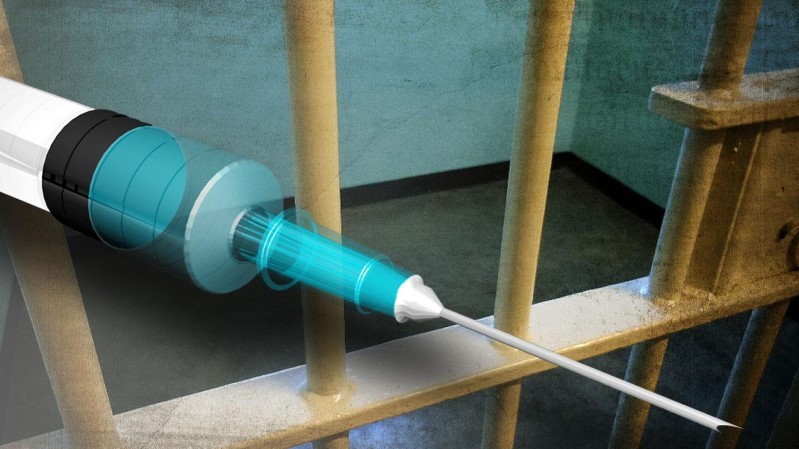ATLANTA (AP) Lawyers for a Georgia inmate with an execution date looming are asking a judge to let a jury determine whether the man is ineligible for execution because of intellectual disability.
John Wayne Conner, 60, is scheduled to be put to death July 14 at the state prison in Jackson. He was convicted of beating his friend J.T. White to death 34 years ago during an argument after a night of drinking and marijuana use.
Conner's lawyers argued in recent court filings that evidence they've presented in federal court proves that he is intellectually disabled and that his intellectual disability developed at an early age. They also assert that Butts County Superior Court Judge William Fears should reconsider arguments that Conner's trial lawyer was ineffective.
Executing Conner now, who has spent 34 years on death row, would also be unconstitutionally cruel and unusual, his lawyers argued. They said it would amount to double jeopardy, or punishing him twice for the same crime.
Conner's lawyers asked the judge to stay the execution to give him and the Georgia Supreme Court more time to examine the complex issues involved.
Lawyers for the state counter there has been no change in the facts or law since Conner's previous claims of intellectual disability were rejected by the court, so the current arguments are procedurally barred. They also note that a federal judge has since ruled that Conner isn't intellectually disabled.
State lawyers also dispute that the death sentence would be cruel and unusual or constitute double jeopardy, arguing that no court has accepted such arguments.
Conner went to a party with his girlfriend and other friends, including White, on the night of January 9, 1982. They spent the evening drinking and smoking marijuana before returning to the home Conner shared with his girlfriend in Milan, about 150 miles southeast of Atlanta.
Court documents say Conner's girlfriend went to bed, and Conner and White left the house on foot with a nearly empty bottle of bourbon in search of more alcohol. Conner told police he and White were walking down the road when White told Conner he wanted to sleep with his girlfriend. That led to a fight, during which Conner told police he hit White with the bottle and beat him with a stick, the documents say.
Conner's trial lawyer did very little investigation into his client's background and mental health history and did not present any evidence at either the guilt-innocence phase or the sentencing phase of his trial, Conner's current lawyers wrote in recent court filings. Subsequent attempts by Conner's lawyers to raise concerns about intellectual disability have been thwarted by state courts, they wrote.
A federal district judge in 2013 allowed his lawyers to present evidence on the issue of intellectual disability, including testimony from three experts who said he ``meets the criteria for a diagnosis of intellectual disability,'' Conner's lawyers wrote. At least one said Conner's disability likely stemmed from brain damage suffered as a child at the hands of a very abusive father.
His lawyers also presented evidence from former school teachers, who said they observed cognitive and adaptive skills impairments in Conner at a young age.
The federal district judge, who also heard from three state experts, ruled that Conner failed to prove he's intellectually disabled. A federal appeals court panel said it could not overturn the district judge's ruling because it was a plausible interpretation of the facts presented.
But the existence of credible evidence of intellectual disability means a jury trial on that issue should be held in the court where he was convicted, Conner's lawyers argue.
State lawyers argue that the issues Conner raises have already been presented and rejected or could have been presented previously and, therefore, are procedurally barred.
Conner's execution would be the sixth this year in Georgia, if carried out, or the state's most in a calendar year since the death penalty was reinstated nationwide in 1976. Georgia executed five inmates last year and in 1987.

http://accesswdun.com/article/2016/7/417281/lawyers-ask-judge-to-halt-execution-for-georgia-inmate
